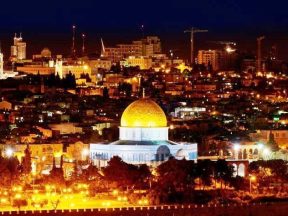From Rumba to Sapeurs.
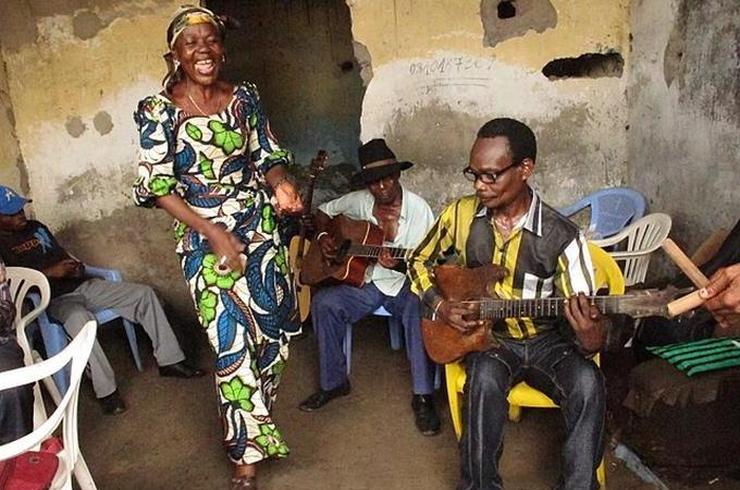
Walking around the neighbourhoods of Lemba or Matete in Kinshasa or Bacongo and Makélékélé in Brazzaville, you are immediately taken by music that instinctively invites you to join in the dancing.
In the evening in the many bars on the outskirts of the two capitals, people move to the rhythm of the rumba. A music that unites people from both sides. “The rumba is our most basic sound and the one with which we identify throughout the world”, declared Antoine Manda Tchebwe, director general of the International Centre of Bantas Civilizations, on the occasion of the international symposium on Congolese rumba which was held in March 2020 at the new Kinshasa Museum. For its part, the Joint Scientific Commission on Rumba, made up of the two Congos, in presenting the candidacy of Rumba to UNESCO as the Intangible Heritage of Humanity, declared in one of its documents that the rumba “is the expression par excellence of our passion for life, of our resilience. A travel and struggle companion in the political history of the two countries, it ended up becoming not only a space for celebration, but also a vector for mobilizing popular consciences”. On 14 December 2021, it was included by UNESCO in the list of the
Immortal Heritage of Humanity.
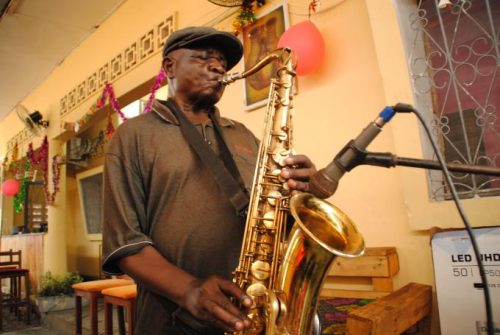
Saxophonist Julien Balona of Vox Africa in concert. On 14 December 2021 Rumba was included by UNESCO in the list of the Immortal Heritage of Humanity. Photo: Lwanga Kakule
Jeannot Bombenga, 89, a famous author and composer, after singing in Joseph Kabasele’s African Jazz founded the Vox Africa orchestra. Today he is the oldest Congolese musician, with the longest career both in Congo and with Ganga Edo, a musician from Congo-Brazza, who died in June 2020 at the age of 87. On several occasions, he shared the podium in Kinshasa and Brazzaville with Brazzavillian artists such as Edo Nganga, Franklin Boukaka and Célestin Kouka.
For him, the recognition of Congolese rumba as a world heritage is a great event: “It is a great joy for me and for the Congolese people of the Democratic Republic of Congo and the Republic of Congo. It is the recognition of the work of our Congolese ancestors on both sides of the Atlantic, who were deported as slaves to America and yet managed to preserve their culture”. For Jeannot, Congolese music unites the people of Kinshasa and Brazzaville: “Even if politics sometimes seems to divide us, we are one people, the Congolese people, united by our rumba
and our culture”.
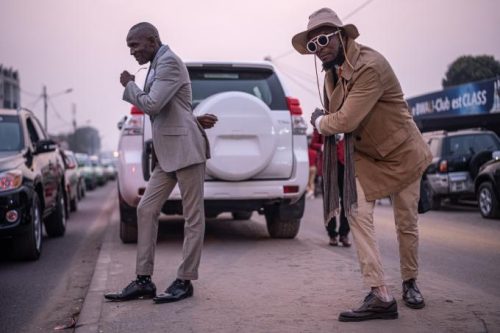
Two sapeurs in the street of Brazzaville. Photo: Marco Simoncelli
Ostentatious clothes
Since the 1920s, members of the Société des Ambianceurs et des Personnes Elegantes, or ‘sapeurs’, adepts of high fashion and extravagant clothing, have gracefully roamed the neighbourhoods of Brazzaville and Kinshasa. This clothing culture has created a following of young people who emulate their mentors. They often dress in ostentatious and expensive clothes, in step with fashion trends.
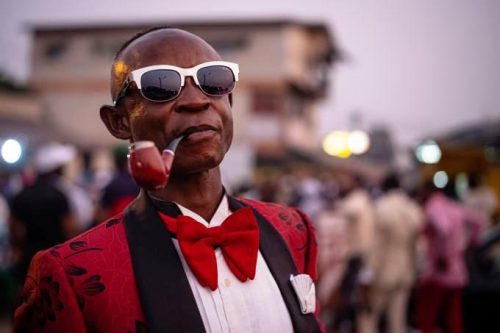
In Congo-Brazzaville, sapeurs have been elevated to the status of ‘cultural heritage’. Photo: Marco Simoncelli
The paradox is sometimes impressive: it is not uncommon to see these sapeurs strutting around the streets of these capitals with very expensive costumes under an oppressive sun, even when they live in slums and in very precarious housing.
In Congo-Brazzaville, in particular, sapeurs have been elevated to the status of ‘cultural heritage’ by President Denis Sassou Nguesso, allowing them to participate in public cultural events such as the Salon Africain de la Mode et de l’Artisanat. (Open Photo: 123rf) – (L.K.)



